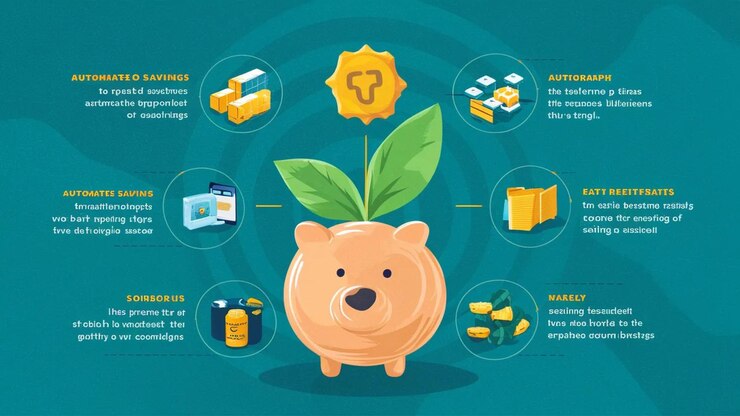Automate Your Finances
BynambiPublished 88 days ago
8. Automate Your Finances
Automation reduces decision fatigue and builds consistency.
What to Automate:
Savings: Set a fixed amount to auto-transfer to a savings account each month
Investments: SIPs (Systematic Investment Plans) for mutual funds or ETFs
Bill Payments: Rent, EMIs, subscriptions
By automating, you make saving and investing a habit instead of a choice you have to make repeatedly.
💼 9. Side Hustles: Boost Your Income
Sometimes saving isn’t enough—you need to earn more.
Popular Side Hustles:
Freelancing (writing, design, coding)
Selling digital products (ebooks, courses)
Affiliate marketing
Starting a dropshipping or print-on-demand store
Extra income can be directed toward debt repayment, emergency funds, or investments.
🧮 10. Understand Net Worth & Cash Flow
What is Net Worth?
Net Worth = Total Assets – Total Liabilities
Track it yearly to understand your financial growth.
What is Cash Flow?
Cash Flow = Income – Expenses
Positive cash flow means you're spending less than you earn.
Apps like Money Manager, Walnut, or Excel help you track these metrics effectively.
🧾 11. Smart Spending Strategies
Don’t just focus on saving—focus on value-based spending.
Ask Before You Buy:
“Do I need this?”
“Will this bring long-term value?”
“Is there a cheaper alternative?”
Use These Techniques:
30-day rule: Wait 30 days before making non-essential purchases
Cash-only challenge: Spend only cash for a week to build spending awareness
No-spend days: Designate a few days per month with zero discretionary spending
🪙 12. Retirement Planning
It’s never too early to plan for retirement—even if you're in your 20s.
Retirement Accounts (India):
EPF (Employee Provident Fund)
PPF (Public Provident Fund)
NPS (National Pension System)
Retirement Accounts (US):
401(k)
Roth IRA / Traditional IRA
Compounding interest works best over time. Start early, contribute consistently.
🌐 13. Digital Safety and Fraud Protection
In a cashless world, cyber-financial security is crucial.
Tips:
Use strong, unique passwords for banking apps
Enable two-factor authentication
Never share OTPs or account details
Monitor your credit report annually
Tools like Credit Karma (US) or CIBIL (India) help monitor credit health and detect fraud.
🎁 14. Smart Gifting & Donations
Even giving can be part of a healthy financial lifestyle.
Gift Budgeting Tips:
Use “Secret Santa” for large families
Set a spending cap for birthdays/festivals
Consider homemade or experience-based gifts
Donations:
Donate to NGOs, disaster relief, education funds
Keep a record for tax deductions (80G in India)
🧘 15. Money & Mental Health
Financial stress can affect sleep, relationships, and productivity.
How to Reduce Money Anxiety:
Create a monthly review ritual to track progress
Avoid toxic comparison (especially on social media)
Speak with a financial advisor or counselor if needed
Remember: Money is a tool, not a measure of your worth.
📆 16. Monthly Checklist to Stay Financially Fit
Here’s a monthly habit checklist:
✔ Review your budget
✔ Track all expenses
✔ Check your credit card statement
✔ Monitor your investment portfolio
✔ Transfer to emergency/savings fund
✔ Plan for upcoming bills or events
✔ Learn one new financial tip
🧭 Final Words: Financial Freedom Is a Journey
You don’t need to be rich to build wealth—you need to be intentional. This blog isn’t just a list of steps; it’s a mindset shift.
Take control. Be consistent. Learn continuously. The future version of you will thank you.






.avif)


















.jpg)





.png)























.jpg)










